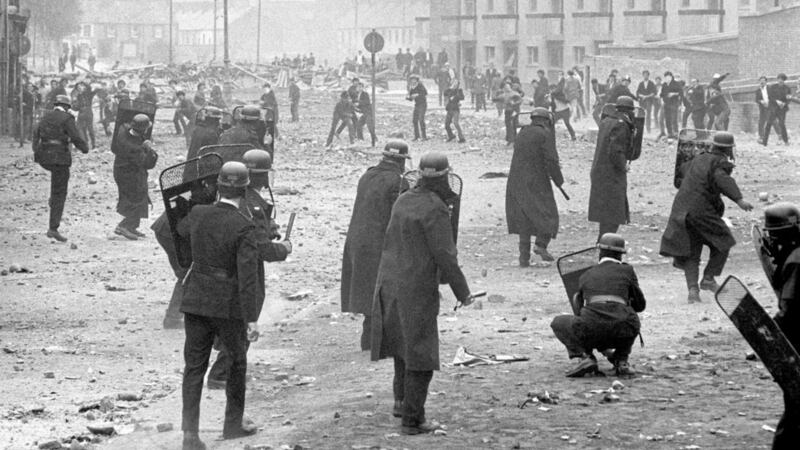I TOOK part in a project organised through my daughter’s school at the weekend which aimed to capture parents and grandparents' memories of the Troubles.
My daughter Maoliosa had to interview me on camera about what my childhood was like and I had to interview her about her thoughts on the Troubles. She is 10 years old and as we talked on camera I was struck by how her childhood and mine were so radically – and thankfully – different.
I asked her first what she thought the Troubles were. She said she thought it was mostly people fighting over religion. She said her daddy had told her about British soldiers living on the top of the flats he grew up in in the New Lodge and she said wasn’t sure but she thought the Troubles lasted about two years. If only.
Then it was her turn to interview me. She asked me what it was like for me growing up and I told her that it wasn’t all that great and that my childhood bore no resemblance to hers at all. I told her that school was a safe haven for us, and being in the middle of a working-class nationalist area, the Troubles would have been regularly raging outside our windows.
I told her one of my earliest memories was being evacuated from my Primary Three classroom due to a bomb alert and crying hysterically because I knew my little brother – who was not yet four and had just started nursery school – would be scared standing out in the pouring rain at the top end of the playground as teachers tried to get us as far away from the suspect device as possible.
I told her about the time I saw two IRA men in a car being shot as I walked to the shop for sweets when I was just a little girl, that soldiers would regularly stop us and ask us where we were going to and coming from and that our city centre was an absolute ghost town with bombed and shuttered shops.
I told her that your favourite shop would be there one day and a shell of a building the next because someone planted an incendiary device and burnt it to the ground, and that we lived for trips to Leisureland in Belfast.
I told my daughter that when I was her age I thought everyone’s childhood was full of bombs and bullets and burnt-out buildings, armed soldiers on the school bus, friends being off school because someone in their family had been shot dead and that everyone knew the difference between the sounds of fireworks and gunfire.
I thought that was how it was and children in England, America, Spain and elsewhere had the exact same experiences, just with different weather and different accents.
I told her about how explosions going off felt a bit like an earthquake, that we were most accustomed to the sound and sensation, and that by the time I was 18 I had seen someone die in the street.
I told her about friends falling asleep in school because they had been up all night as soldiers searched their houses. I told her about the first time I felt genuinely afraid, socialising with my friends in a bar in my late teens – a completely normal pastime – in the days after the Greysteel massacre, thinking every time the door opened it was a gunman with mass murder on his mind.
I know that half of what I said during our interview went completely over my girl’s head and I’m glad it would. I don’t want her to have any comprehension of what life was like back then, when our childhoods were robbed from us. Those are our memories to carry and I’m content that my daughter and all of our children will recollect much brighter and happier times because of the work we have all done on peace.








